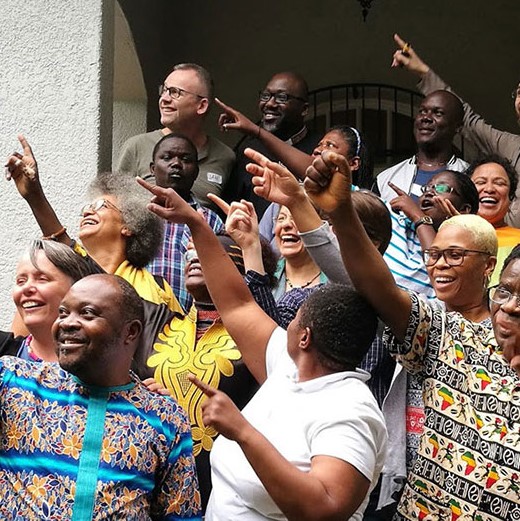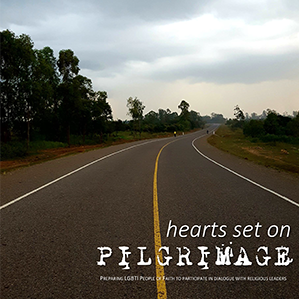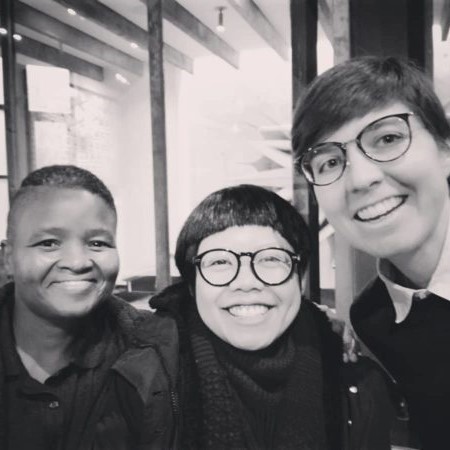On 7 January 2014, Nigerian President Goodluck Ebele Jonathan signed an extraordinarily repressive bill into law: the Same-Sex Marriage (Prohibition) Bill criminalises Lesbians and Gays in Nigeria. The law also criminalises anyone who advocates for human rights for LGBTI people.
After months of delay, Ugandan President Yoweri Museveni, signed the Anti Homosexuality Bill in to law on 24 February 2014; the law makes some homosexual acts, namely “aggravated homosexuality” punishable by life in prison.
The new laws in both Nigeria and Uganda, which add to previously existing legislation, mandates years in jail for people in same-sex relationships. According to existing laws, consensual same-sex activity is punishable by the death penalty in Northern Nigeria.
The new law has unleashed a wave of anti-lgbt violence across Nigeria and Uganda; many people have lost their homes, their jobs and live in fear of their lives. There have been reports of mass-arrests and on Sunday 9 February, the New York Times reported that a court in Nigeria’s Bauchi State publicly whipped a man after being convicting him of having consensual sex with another man.
Naome Ruzindana, a Ugandan human rights defender now based in Sweden but still very much involved in the struggle, commented, “Museveni’s statements are contradictory, once he said Uganda does not have gay persons, another time, he said the only problem is exhibition of sexuality is not in the African tradition which meant he acknowledged their existence but his problem was their action in public.”
On 30th January, a video of two gay men forced to perform sex acts with each other in public in Nigeria went viral. The video shows a mob of people jeering and abusing the victims as they were forced to perform in a way that was both degrading and humiliating.
“Shocking… many Nigerians are still ignorant of the full implications of the antigay law and extent to which it criminalizes everyone for everything” says Dorothy AkenOva, spokesperson for the ‘Coalition for the Defense of Sexual Rights’ Nigeria. She continues, “Our success to repeal this law or render it redundant lies in building alliances and mass education on the content of the bill”.
On 24 February, Uganda’s Red Pepper Newspaper published the names and photographs of 200 people known to be gay or lesbian and incited further violence and arrest under the new law.
“It is totally sickening,” said Ugandan refugee Stosh Nate Jovan.
Not only does the law violate Nigeria and Uganda’s own constitutionally-guaranteed right to freedom of assembly, it also contravenes many of the international treaties ratified by both countries. UN Human Rights Commissioner Navi Pillay had this to say about the law:
“Rarely have I seen a piece of legislation that in so few paragraphs directly violates so many basic, universal human rights.” She added, “Rights to privacy and non-discrimination, rights to freedom of expression, association and assembly, rights to freedom from arbitrary arrest and detention: this law undermines all of them.”
The Global Interfaith Network strongly condemns the undemocratic and discriminatory laws and calls on Nigeria and Uganda to meet their obligations under international human rights law. We believe that under no circumstances can religious belief sanction or allow the alienation and violence which these bills are already inciting against people simply on the grounds of their sexual orientation.
GIN urges the Nigerian and Ugandan government to:
• Ensure that the human rights of LGBTI individuals and human rights defenders are not violated.
• To reject and repeal discriminatory laws and eliminate all existing legislation that discriminates based on sexual orientation, gender identity and expression.
• To take measure to recognise the health, safety and rights of all minorities.
Signed,
Global Interfaith Network
We envision a just world in which the dignity, faith, spirituality and human rights of persons of all sexes, sexual orientations, gender identities and expressions are honoured, supported, and protected.




